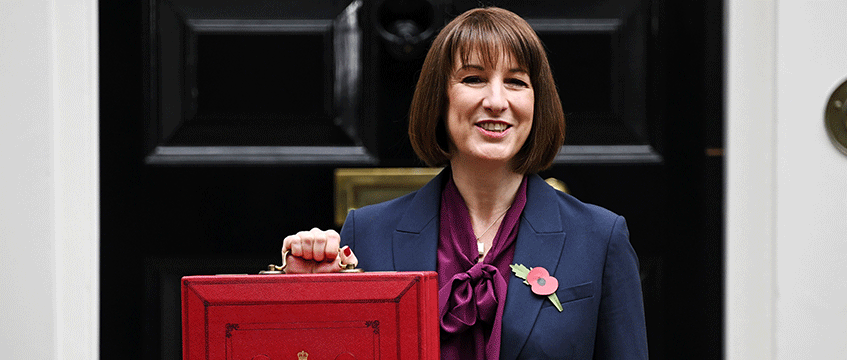The government has committed an extra £46m in today’s Budget to boost capacity across local planning authorities in a bid to speed up development and improve what one real estate professional calls a “hostile environment”.
The full 170-page Budget Report was laid before the house by chancellor Rachel Reeves, promising a government response to the National Planning Policy Framework before the end of the year as well as legislative changes designed to streamline the planning system via the Planning and Infrastructure Bill, which will be introduced in parliament in early 2025.
The Budget also allows for an extra £5m to speed up the planning process for infrastructure projects deemed to be of national importance.
The extra funding for local authorities should enable an extra 300 planners to be recruited. The government has also pledged £5bn of housing investment in 2025-26 as part of its plan to deliver 1.5m new homes.
See also: Reeves’ rates reforms branded ‘absolute madness’
The real estate industry has shown cautious approval.
Jennet Siebrits, head of UK research at CBRE, said the Budget marked the largest tax increase since 1993, with the biggest impacts affecting businesses as opposed to individuals.
“The reduction in the National Insurance employer threshold alone will cost businesses circa £750 more per employee, per annum,” she said. “However, more positively we are seeing a solid narrative from the government. The increased taxes will provide much-needed funds to support growth, with a focus on industries of the future, new housing stock and retrofitting key sites across the country.”
Gateley Legal planning legal director Mark Iveson said there was a “resounding clear message” from Reeves’ first Budget.
“The government is intent on delivering growth and investment in infrastructure – including in homes, education and transport – fuelled by changes to the planning process,” said Iveson. “Hopefully we will see new officers at the right level, especially the higher level where the lack of strategic input, accountability and decision-making ability often leads to delay.”
Alvarez & Marsal tax managing director Kersten Muller said: “Additional funding promised for the planning system is welcome. This will be needed to accelerate the building of new homes although it needs to be coupled with reform.”
Shawbrook managing director of development finance Terry Woodley added: “Reducing planning red tape and streamlining processes is going to play a crucial role in delivering the ambitious 1.5m new homes target.
“But it’s not the only answer: a multi-faceted approach is needed to really address the issues currently facing developers. The recruitment and training of additional planners will take time, and any further planning reform remains unclear.
“The government must prioritise effective, comprehensive planning overhauls to kickstart progress and unlock the UK’s full housebuilding potential.”
Honor Barratt, chief executive of retirement home provider Birchgrove, said: “Planning reform is needed by those of us who use local planning authorities and by those who work in them.
“They work in an incredibly hostile environment in the pursuit of public service so investment in planning teams can only bring benefits for all of us who need somewhere to call home.”
The Budget also outlined plans to support the retail, hospitality and leisure sectors with permanently lower business rates multipliers. From 2025-26 occupiers will receive 40% relief on bills up to a £110,000 cash cap.
Spencer West commercial real estate partner Michael Shapiro said: “For those in the retail and hospitality sectors, the cost of business rates is becoming prohibitive, and this is one of the major causes of so many high street units and pubs being empty. “Anything that is giving support is welcomed. While the business rates system needs a complete overhaul, this is at least a positive start.”
The need for reform was echoed by LCD Ventures chief executive Florian Wupperfeld. Wupperfeld said: “The much-needed business rates reform must now fit into a holistic approach that considers the diverse needs of Britain’s high streets and prioritise local businesses and SMEs over large conglomerates.
“The UK needs vibrant, thriving high streets which have a well-balanced social infrastructure, where smaller local businesses can compete with bigger brands.
“If we can create an environment to allow this to happen, the UK’s high streets will retain their unique culture and identity that make Britain so unique for locals and visitors alike.”
Image © James Veysey/Shutterstock
Send feedback to Jim Larkin
Follow Estates Gazette











